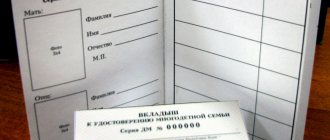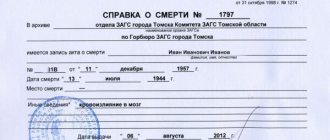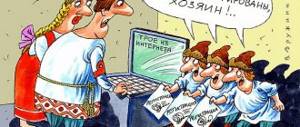Parts of pension; which one is subject to inheritance
The law provides for the inheritance of the pension savings of the deceased. The pension is divided into 3 parts:
- basic;
- insurance;
- cumulative.
The heirs have the right to lay claim to the accumulative part, which is formed over a long period of time and can reach large sizes.
Cumulative part of pension
The formation of a funded pension is available to citizens born in 1967 and later. The storage part consists of:
- insurance premiums by the employer, 6% of the citizen’s earnings, but not more than 415,000 rubles. annually;
- contributions to the pension fund on a voluntary basis by a citizen;
- contributions from the state in the form of co-financing;
- income from the testator's investments.
List of required documentation
applications for payment of lost pension benefits of a deceased relative.
To receive funds from the Pension Fund, the following information :
- Passport of a relative applying for a pension;
- Death certificate of the person;
- Documents that confirm cohabitation with the deceased person. These include:
- An extract from the home book, form 9 “on family composition”;
- A copy of the passport page with the place of permanent registration;
- Act on living in one residential premises;
- SNILS of the deceased person.
To confirm incapacity for work and the fact of dependency, the following must be submitted:
- Medical report;
- Certificate of assignment of disabled person status;
- Birth certificates of children;
- Certificate from the educational institution about full-time study;
- Certificate of recent income received.
Family ties with the deceased are confirmed by documents:
- about birth;
- passport;
- on marriage registration in the prescribed manner.
The procedure for inheriting a pension
Inheritance of pension savings is impossible under a will. The heirs receive the funded part either by law or provided that the testator has drawn up an application to the Russian Pension Fund. Applications are also accepted from non-state funds. In the application, the testator indicates the successors to whom he transfers the rights to receive pension funds in the event of his death. If a pensioner submits several applications for receivers, the latest is taken into account.
The payment of pension savings to legal successors is discussed in the video
Conditions for pension transfer
Inheritance of a deceased person's pension is permissible only if the testator was born after 1967. Citizens born before this date do not have a funded part of the pension. Also, inheritance is allowed only if the testator either did not have time to use the funded part of the savings, or, having reached retirement age, did not want to do so.
In Art. 23 of the Federal Law of December 17, 2001 N 173-FZ “On Labor Pensions in the Russian Federation” states that the accrued amounts of labor pensions that were due to the pensioner in the current month and remained not received due to his death in the specified month are not included as part of the inheritance. These amounts are paid to his family members who lived with him and applied for payment within 6 months. On March 1, 2002, Part Three of the Civil Code of the Russian Federation came into force, where in Art. 1183 states that family members living with him and disabled dependents have the right to pension amounts not received by the testator during his lifetime. They must submit claims for payment within four months from the date of opening of the inheritance.
The following have the right to inherit the funded part of the pension:
- First priority legal successors: children (including adopted children), spouses, parents (including adoptive parents).
- Heirs of the second stage: grandparents, sisters, grandchildren.
- Legal successors according to the application: persons whose names and shares the testator indicated in the pension fund (may not be blood relatives of the deceased).
Heirs will not be able to claim a relative’s pension if he managed to use these funds (or part of them) before death.
The procedure for receiving a pension as an inheritance
Deadlines
In order to receive the pension payments of the deceased, his successors must submit a corresponding application to any territorial body of the Pension Fund of the Russian Federation within six months after his death, otherwise they will then have to restore the missed deadline.
To receive the funded part of the pension, the heir should contact any branch of the pension fund closest to his place of residence.
You will need a small package of documents and an application for the issuance of funds. If there are several heirs, the savings are divided equally between them (in the absence of expression of the will of the testator).
The pension fund has the right to give all funds to the first applicant and oblige the cash to be divided among the remaining heirs (learn about the shares of heirs by law in the inherited property from the article https://nasledstvo.today/3701-vydelenie-dolei-naslednikov-po-zakonu-v-nasledstvennom -imushhestve-razdel-obshhego-imushhestva-suprugov). Payment is made once, in full. If the deadlines for accepting an inheritance are missed, the applicant is free to restore them in the standard manner, as in cases of inheritance of other types of property. Have a question about inheriting a pension? Ask it in the comments
Rules for receiving the funded part of a deceased relative's pension
Many citizens of the Russian Federation ask the same question - if a relative of retirement age dies, is it possible to receive the funded part of his pension or not?
In what cases is this possible? How to apply? What documents need to be prepared? What to do if PF employees wrongfully refused to receive a payment?
Let's consider all the questions in more detail.
Who is the heir
Note!
The issue of transferring the rights to use pension savings is discussed in more detail in paragraph 12 of Article No. 9 of Federal Law No. 173 of December 2001.
This law describes in great detail the rules for spending the financial capital of the funded part of citizens after their death. Moreover, only a limited number of persons may have such a right.
The issue of these payments is discussed in detail in Federal Law No. 173 , in particular in Articles 12 and 16.
Based on these regulatory documents, we can say with confidence that the right to receive this payment.
Heirs of the 1st stage :
- spouse of the deceased person;
- children or parents (whether adopted or biological).
The second line of heirs includes:
- brothers;
- sisters and other relatives.
In addition, it is worth remembering one nuance: there are several categories of citizens who have a guaranteed right to receive this payment.
These include citizens who were once dependent on a deceased pensioner for one or more years. But there are also conditions here that are important to always remember. Moreover, heirs must know about them.
Helpful advice!
There are situations when a person, although he has a guaranteed right to receive the funded part of the pension, will not be able to receive it. The main reason for this is the recognition of the fact of an unworthy heir. However, such a decision can only be made during a court hearing.
Factors that may influence the adoption of this type of judicial decision are:
- recognition of the fact of any illegal action against the testator. For example, attempted murder or possible intentional harm to health;
- lack of evidence of fulfillment of one’s duties directly in relation to the testator. This could be non-payment of child support.
In addition, there may be other important grounds for refusal to receive the funded part of the pension payment. For example, if several relatives are entitled to receive this payment, it will go to both of them in equal shares.
If there are no controversial situations, then there is no need to appeal to a judicial authority.
In addition, according to the laws of the Russian Federation, citizens have every right to draw up a will , which can help in deciding who is entitled to receive pension savings after death.
A will can also be challenged during a court hearing, but if everything is done by legal means, then the court’s decision will definitely be on the side who is entitled to this sum of money under the document.
Where to contact?
Applicants for receiving this payment will have to contact the territorial department of the Pension Fund in the office.
submit documents in the following ways:
- by personal contact;
- with the help of a trusted person;
- postal delivery. In this case, it will be necessary to send by registered mail with an inventory.
Calculation of payments and persons entitled to receive
The procedure for receiving funds upon death is accrual from the 1st day of the period; you need to understand that this money is always paid and without delay. They are paid after just a few days and not in installments. There are certain nuances that it is advisable to know and apply:
- When using funds to calculate pensions, there are certain services operating in accordance with the law; the instructions of these services say that money can be withdrawn only if they receive funds that the pensioner did not have the ability to use during his lifetime.
- Those relatives whose relationship has been proven by the relevant services have the opportunity to receive money.
- Documents indicating relationship with the pensioner.
People who lived with the pensioner can also receive a pension. Full list of recipients:
- Officially registered marriage with the subject.
- Relatives of the pensioner, according to his children, subject to living with the pensioner.
- Only blood relatives by parents.
- Relatives of the subject by registered marriage.
- Parents and their blood relatives, but only those who are fully responsible for their behavior, without the presence of strangers.
Why is it important to immediately report the death of a pension recipient?
Often close relatives of a pensioner have access to his confidential data, including PIN codes for cards. Few people know that after the death of a pensioner, withdrawing funds from his bank card, where pension accruals are received, is prohibited. Illegal actions will soon be discovered, and relatives will be obliged to return the money, even if by law they have the right to inherit this amount. As we wrote earlier, in order to receive unclaimed funds from a pensioner’s card, each relative needs to personally visit the pension organization and submit an application on their own behalf. When the data is verified and recorded in the electronic system, relatives will be able to receive a payment.
Is the pension accrued after death?
As soon as the question arises of how to receive the pension of a deceased relative, it is best to understand the features of pension accruals.
The pensioner receives cash payments to his account every month. This process stops on the 1st of the following month after the death occurs. However, if the pensioner did not withdraw the last accrued pension from the account before his death (sometimes several pensions in recent months), the relatives who lived with the deceased have every right to claim the entire remaining shortfall in pension accruals.
Whatever the date of death, the payment must be accrued for the entire month. Even in cases where death occurs on the 1st of the month, money is accrued in full. If at least part of them, in comparison with the full monthly payment, is withheld, this is illegal and may be a reason for going to court.
How to process lost benefits
The procedure for applying for the balance of the deceased’s payment depends on the payer of this type of benefit. As a rule, there are only two of them:
- The Pension Fund is in charge of documents for social benefits;
- the military is dealt with by the ministries that appointed them.
Attention: the appeal should be sent to the authority that calculated payments to the deceased.
Who is eligible to receive?
The law clearly defines the list of persons who can claim to receive a pension after the death of a pensioner in Russia. In order of priority, the list looks like this:
- dependents (regardless of whether they lived together or not);
- relatives of the deceased - in the manner prescribed by the Civil Code of the Russian Federation (primarily the spouse and children of the pensioner);
- persons who cared for the benefit recipient in the last period of his life.
To receive payment for providing care to a pensioner in need of assistance, the applicant must document the fact of providing care - for example, by having an appropriate written agreement.
What documents are needed for registration?
To receive an unpaid insurance pension due to the death of a citizen, his relatives must provide the following documents :
- an application for payment of the amount accrued but not received by the pensioner (the application form is available on the official website of the Pension Fund);
- passport;
- death certificate of the pensioner;
- confirmation of family relationships (marriage certificate, birth certificate, adoption certificate, etc.);
- confirmation of the fact of cohabitation (certificate from housing authorities, copy of registration certificate, etc.);
- details for non-cash transfers if the applicant plans to receive funds to a bank account or card.
Be sure to read it! How to properly draw up a contract for the sale and purchase of a log house?
If the deceased citizen was a recipient of a military pension , then his relatives, in addition to the above documents, must additionally submit to the relevant law enforcement agency (military registration and enlistment office) the work book and military identification card of the deceased.
In special cases, other documents confirming certain circumstances, for example, a notarized power of attorney, court decision, etc. After the documents are accepted, employees of the relevant authority check the authenticity of the documents and make a decision - to transfer funds to the applicant or to refuse payment.
What documents should the relatives of a deceased military man or WWII participant submit?
Slightly different conditions are laid down in Article 63 of Law No. 4468-1 for relatives of a deceased military man. Thus, his shortfall in material support is transferred to his relatives, who carried out the burial of this person (at their own expense). This condition leads to the need to collect additional information:
- the fact of burial is confirmed by a document from the local government;
- it must be issued in the name of the applicant;
- the remaining papers are selected according to the above algorithm.
Attention: the legislation separately talks about the rights of widows of WWII veterans, to whom the Ministry of Defense also allocates money.
Additionally, widows have the right to receive the deceased’s pension and other preferential payments to him. To do this, the following documents must be attached to the application:
- husband's certificate stating that he was a participant in the Second World War;
- certificate:
- about the death of her husband;
- on the conclusion of marriage bonds;
- certificate of family composition;
- passport.
What type of pension can you get?
You can claim the lost payment as:
- insurance social benefits;
- the savings part (discussed below);
- military pension;
- alimony;
- payment of compensation for harm;
- other social benefits.
These amounts are not part of the inheritance estate, and potential heirs cannot claim them.
When can I claim my pension?
For those applying for payment of a pension after the death of a pensioner, the law sets a deadline of six months. This time period is directly related to the pause period of the same duration for applicants to receive the inheritance
What happens if you don’t receive money on time?
If, in due time after the death of a pensioner, persons from among his relatives do not apply for his money, then this amount becomes part of the inheritance. Accordingly, it will be distributed among all available heirs by law or will.
Attention! If the pensioner has no heirs, then the property constituting the estate becomes escheated and becomes the property of the state.
In cases where the heirs missed the required deadline for accepting the inheritance, it is possible to restore it if there are good reasons. The restoration of the term occurs in court.









